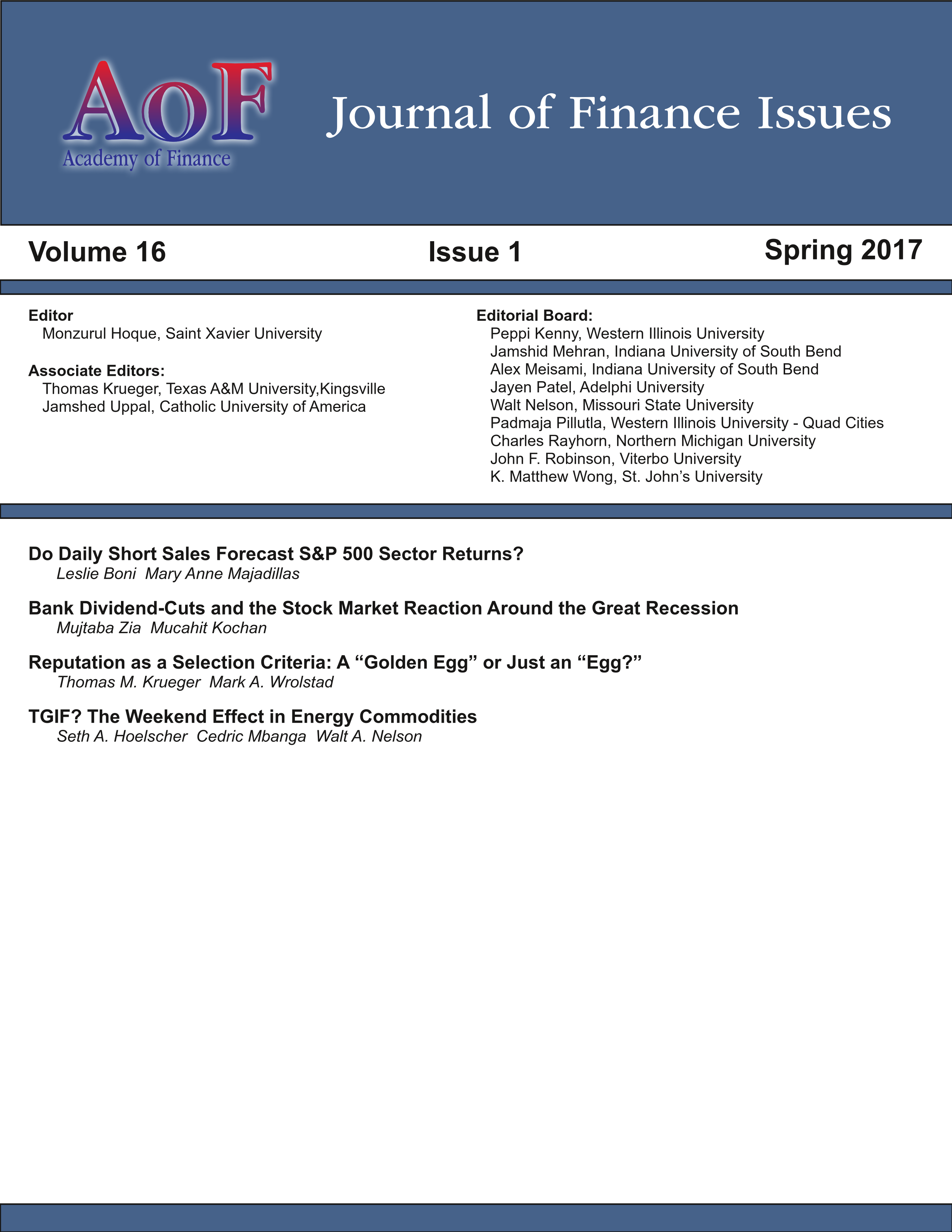Reputation as a Selection Criteria: A “Golden Egg” or Just an “Egg?”
DOI:
https://doi.org/10.58886/jfi.v16i1.2216Abstract
The semi-strong level of the Efficient Market Hypothesis (EMH) asserts that current prices reflect all of the publically available information about a firm. Harris Interactive, Inc. has done extensive polling and data analysis of public perceptions to produce a credible numerical indicator of corporate reputations for which they have coined the term “Reputation Quotient” (RQ). Using RQ information, this research analyzes corporate annualized returns of highly visible firms with very good reputations and compares their performance with firms with very poor reputations. Portfolios of the ten firms with the best reputations have higher raw returns than portfolios of the ten firms with the worst reputations but the difference is not statistically significant. However, reputations appear to parallel risk, with firms possessing better reputations having lower return standard deviations and less sensitivity to market conditions. As a consequence, firms with good reputations have significantly higher Sharpe, Treynor, and Jensen’s alpha measures. This observed outperformance was found to be more significant during the second half of the fourteen year period studied which includes the 2008 financial crisis and its' aftermath.





